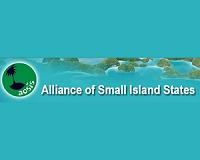| . |  |
. |
Bonn (AFP) June 11, 2010 A round of UN climate talks was wrapping up Friday, helped by a dose of trust after the Copenhagen Summit but still troubled by the splits which drove that historic conference close to disaster. After 12 days of talks, delegates were issued with a gingerly-worded document which seeks to revive the quest towards a post-2012 treaty after the rows in Copenhagen last December. If approved, the draft text would become an official blueprint for negotiations. And in turn, if all goes well, that would culminate in a deal -- possibly by the end of 2011 -- which would slash emissions of greenhouse gases and channel billions of dollars in aid to poor countries in climate change's firing line. After Copenhagen, where bickering and nit-picking brought the world's biggest summit close to a breakdown, the mood in Bonn showed a good improvement, delegates said. "Many of the issues, especially the issues that are important to developing countries, are being discussed in a more effective and constructive way," said Yvo de Boer, making his swan song as the UNFCCC's executive secretary. "This all in all is a big step forward, making much more possible in Cancun." The talks were the mid-way point to the next big UNFCCC gathering, taking place in the Mexican resort of Cancun from November 29 to December 10. But beneath the brighter tone, problems of substance remained. Major blocs set down early markers of their opposition to the tentative text, drafted by Margaret Mukahanana-Sangarwe of Zimbabwe, who chairs the main negotiating group. The document puts forward a range of goals for cutting greenhouse gases, including slashing emissions by as much as 85 percent by 2050 compared with 1990 levels, and sketches objectives for climate aid and deforestation. Debate is likely to be furious at the next round of talks in Bonn in August over how to share out the burden and where to place priorities. In addition, the text still has big gaps, including the legal status of the post-2012 treaty. The so-called G-77 bloc of developing countries and, separately, the associations of African states, small island states and least-developed states, warned that they considered the text to have many gaps, weighed in favour of rich economies or even violating the principles of the UNFCCC. They were especially worried it meant the death knell of the Kyoto Protocol, the world's sole treaty that spells out targeted reductions in carbon emissions. Kyoto's commitments expire at the end of 2012. China's delegate Su Wei poured criticism on Mukahanana-Sangarwe's efforts. "I was very much surprised," said Su. Referring to a 2007 initiative that charted the way towards the envisioned treaty, he charged: "You deviated from the Bali Road Map by 50 percent." Others were less harsh. "We've got problems with it (the text) as everyone has, but we are prepared to move forward on it as a basis for discussion... at least we've got a starting point," said South African delegate Alf Wills. The United States was non-committal, saying it would closely study the text. "Everyone will find something they like, as well as something they hate," said Kaisa Kosonen of Greenpeace. Alden Meyer of the Union of Concerned Scientists warned that the clock was ticking. "With only two weeks of negotiating time now left before Cancun, it is vital that countries move beyond procrastination and start engaging in direct negotiations on these big issues when they return in August," he said. Man-made greenhouse gases are a by-product of burning oil, gas and coal, which provides the backbone of today's energy supply, and from deforestation. Colourless and odourless, these gases are accumulating in the lower atmosphere, trapping heat from the Sun in the famous "greenhouse" effect. On current trends, warming from the Sun will so disrupt Earth's fragile climate system that many millions of people will face worse drought, flood, storm and rising seas by century's end, the UN's climate panel says.
Share This Article With Planet Earth
Related Links Climate Science News - Modeling, Mitigation Adaptation
 Climate: Saudis block call for warming report
Climate: Saudis block call for warming reportBonn (AFP) June 11, 2010 Saudi Arabia on Thursday blocked a call by vulnerable island states at climate talks for a study into the impact of 1.5 degrees Celsius (2.7 degrees Fahrenheit) of global warming, delegates said. The appeal came from the Association of Small Island States (AOSIS), gathering low-lying islands in the Caribbean, Indian Ocean and the Pacific, which is lobbying hard for the UN climate arena not t ... read more |
|
| The content herein, unless otherwise known to be public domain, are Copyright 1995-2010 - SpaceDaily. AFP and UPI Wire Stories are copyright Agence France-Presse and United Press International. ESA Portal Reports are copyright European Space Agency. All NASA sourced material is public domain. Additional copyrights may apply in whole or part to other bona fide parties. Advertising does not imply endorsement,agreement or approval of any opinions, statements or information provided by SpaceDaily on any Web page published or hosted by SpaceDaily. Privacy Statement |